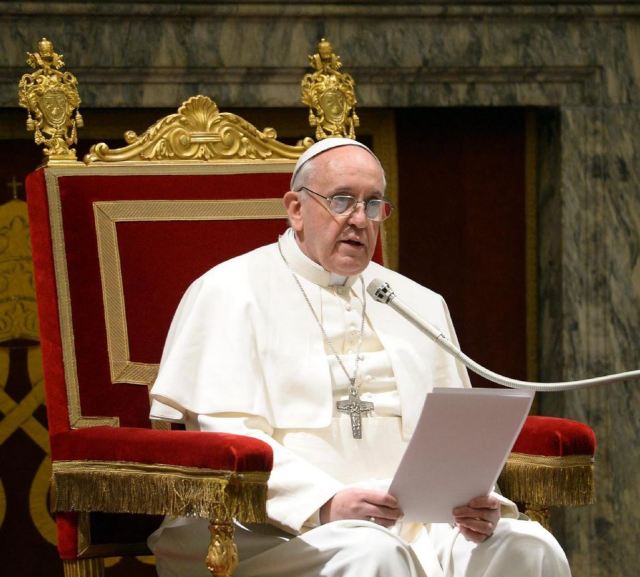 Was he contagious?
Was he contagious?
The man had asked me to pray for him. He told me he had a mysterious fatal disease for which there was no cure.
Overcoming my fear, I reached out and placed my arm around his shoulder, and began to pray for him.
The year was 1990, and the man had contracted HIV from a tainted blood supply. He was a hemophiliac.
At the time no treatments had been developed, and the means of transmission for this disease were not fully known. The man died a few months after this, leaving behind a wife and two small children.
The Lord did not answer my prayers for healing, but the man was moved by my compassion and especially by my willingness to reach out and physically touch him. At the time a great deal of fear swirled around this illness.
Pope Francis urges us to leave our comfort zone and instead to to head for the periphery, “I prefer a Church which is bruised, hurting and dirty because it has been out on the streets, rather than a Church which is unhealthy from being confined and from clinging to its own security” (GE 49).
Pope Francis points out that “all the baptized, whatever their position in the Church or their level of instruction in the faith, are agents of evangelization” (EG 120). We cannot be passive recipients who leave this task to professionals. “Every Christian is challenged, here and now, to be actively engaged in evangelization” (EG 120). Pope Frances notes, “Every Christian is a missionary to the extent that he or she has encountered the love of God in Jesus Christ: we are no longer “disciples” and “missionaries,” but rather always “missionary disciples.” (EG 120).
The second phrase “personal encounter” or the Spanish “encuentro personal” relates to a major theme Pope Francis highlights concerning what he calls the “crisis of communal commitment” (EG 50-55) or the ‘culture of exclusion’ which we must overcome.
Increasingly our culture is creating a kind of indifference or exclusion to others which alienates us from those around us (EG 53). The modern process of secularization tends to reduce faith to the sphere of private and personal and to promote relativism.
Recently the U.S. Conference of Catholic Bishops have approved their 2017-2020 strategic plan. One of the key priorities for the future is, “Evangelization” or ‘opening wide the doors to Christ through missionary discipleship and personal encounter‘ (November 2016).
The bishops are clearly echoing the language of Pope Francis in his apostolic exhortation, The Joy of the Gospel, (Evangelii Gaudium 119-129).
Already in 1965, the Fathers of Second Vatican Council complained about Catholics, “who imagine they can plunge themselves into earthly affairs in such a way as to imply that these are altogether divorced from the religious life.” They remarked that “this split between the faith which many profess and their daily lives deserves to be counted among the more serious errors of our age.” (Gaudium e Spes 43). Clearly these words are still very true today.
Pope Francis notes that, “The individualism of our postmodern and globalized era favors a lifestyle which weakens the development and stability of personal relationships and distorts family bonds” (EG 67). This culture of exclusion must be opposed with a new culture of encounter (encuentro).
In relation to the new evangelization Pope Francis calls for a new experience of missionary renewal which takes place in our daily experience of others. He notes, “We must “bring the Gospel to the people we meet, whether they are our neighbors or complete strangers. Being a disciple means being constantly ready to bring the love of Jesus to others, and this can happen unexpectedly and in any place: on the street, in the city square, during work, and on a journey” (EG 127).
In light of this truth, Pope Francis makes the following impassioned plea,
I invite all Christians, everywhere, at this very moment, to a renewed personal encounter with Jesus Christ, or at least an openness to letting him encounter them; I ask all of you to do this unfailingly each day. No one should think that this invitation is not meant for him or her, since “no one is excluded from the joy brought by the Lord” (Evangelii Gaudium, 3).
Pope Francis points out that no Christian can escape the call to be a missionary disciple. We are called to imitate Christ through our own journey of discipleship with others.We are each called both to follow and to lead.
Recent Comments